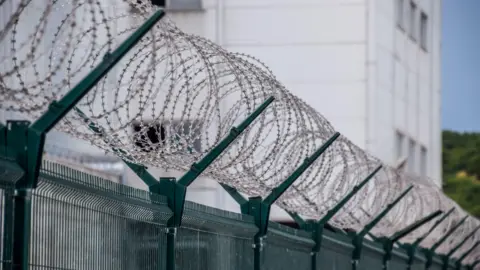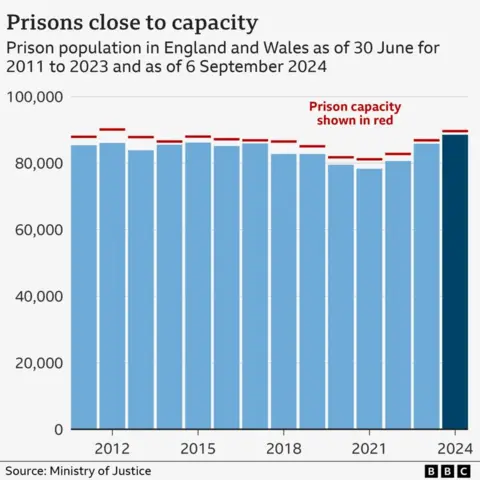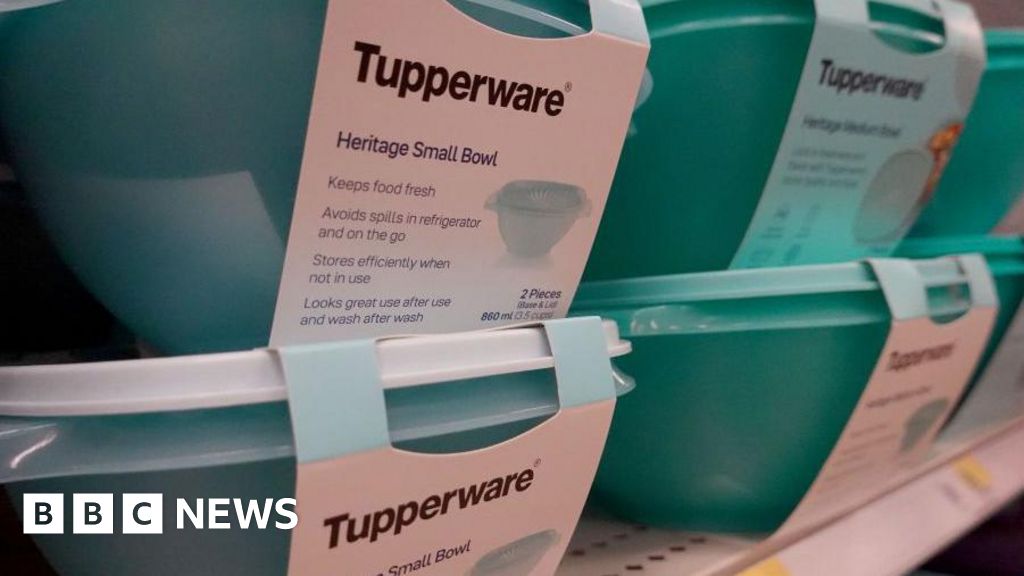
 Getty Images
Getty Images
The government has defended the early release of prisoners after it emerged a former inmate allegedly sexually assaulted a woman on the same day he was freed.
Amari Ward, 31, was released as part of the policy, which aims to ease prison overcrowding, on Tuesday.
He appeared at Croydon Magistrates' Court on Thursday charged with sexual assault and is due to appear at Maidstone Crown Court next month.
The Ministry of Justice (MoJ) said the early release scheme was necessary because it had "inherited prisons in crisis and on the brink of collapse". Reoffenders would be punished, it added.
Ward is alleged to have "intentionally touched" a woman who did not consent in Sittingbourne, Kent, on Tuesday, according to court documents seen by the BBC.
He was arrested at an address in south London.
Ward was charged with sexual assault, denied bail and recalled to prison on Thursday.
A Ministry of Justice (MoJ) spokesperson said: "The government inherited prisons in crisis and on the brink of collapse.
"Had that happened, the courts would have been unable to hold trials and the police to make arrests.
The spokesperson said those that breach licence conditions or reoffend would be punished.
Around 1,750 prisoners were freed early on Tuesday from jails across England and Wales.
Under the early release policy, some inmates were released after serving 40% of their sentence, instead of 50%.
The government's latest iteration of the scheme came after July's general election, but officials had already been drawing it up when the Conservatives were in power.


Some criminals serving prison sentences of less than four years for violent offences are among those eligible to be freed under the scheme.
The scheme also excludes those convicted of domestic abuse, and what the government calls "connected crimes", such as stalking and controlling or coercive behaviours.
Rioters involved in this summer's unrest are also not specifically excluded from early release. They will only stay behind bars for longer if they are serving more than four years for a violent offence.
Terrorists and sex offenders are excluded and will not be freed early.
This month, prisons reached a record population of more than 88,500.
Officials had previously said that some of those released were likely to reoffend.
Earlier this month, Martin Jones, HM chief inspector of probation, said: "There is also, I think, a certainty that some will reoffend."
He added that the risk of serious offences was rare but a risk that could not be eliminated.

 3 days ago
40
3 days ago
40















 English (US) ·
English (US) ·